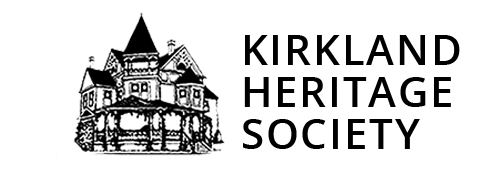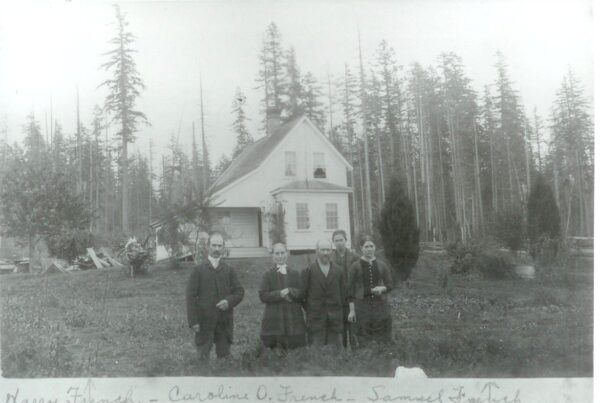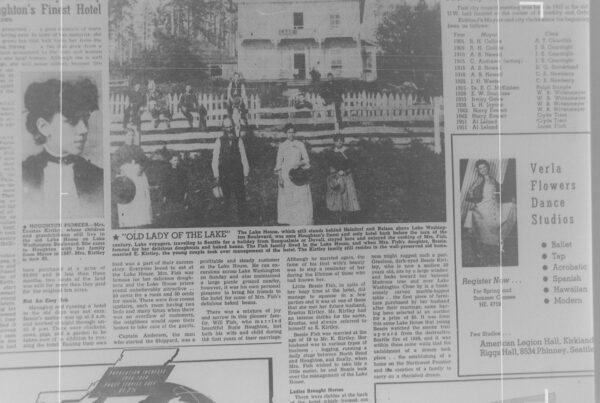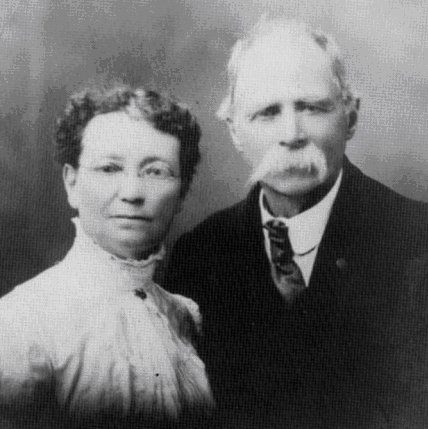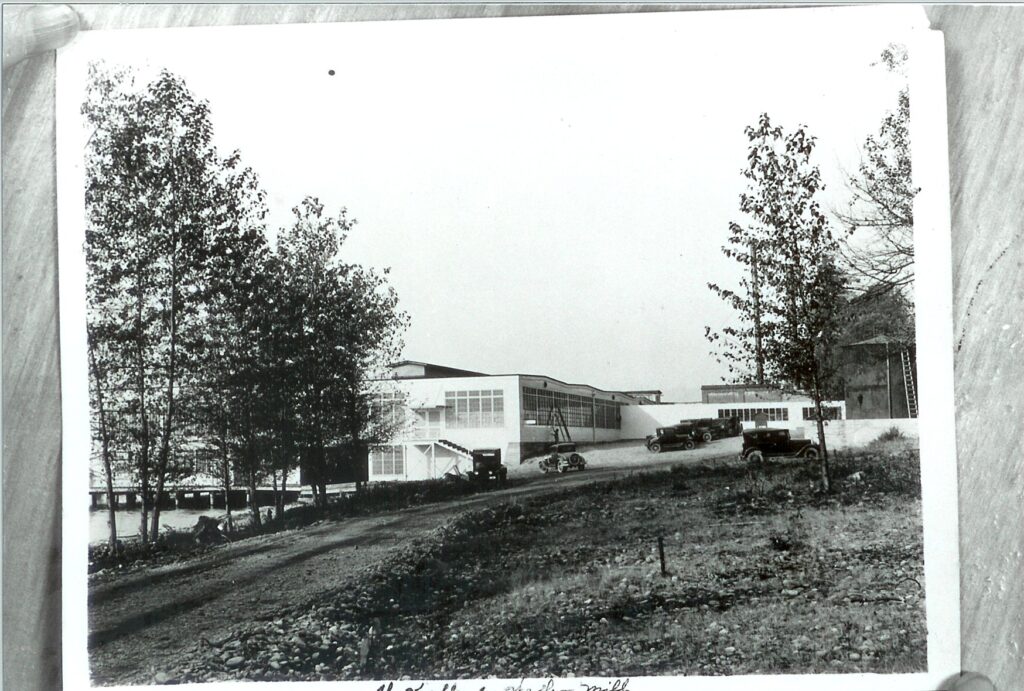
Tomie Kostcnbader
Mrs Lucy (Robert) Barrie’s memories are mostly happy ones..or at least those are the ones she dwells upon. Is evidenced by her bright eyes pink cheeks and assured manner. the Barrie’s must be here to stay. Mr. and Mrs. Robert Barrie moved to Kirkland in 1895 and their son. Ben. now lives exactly 100 feet from the house he was born. Of course their daughter Agnes (Mrs Hugo Barden) has stayed as far away as Seattle* and another son Donald, lives in Juanita but they can scarcely be classed as “outsiders.”
Lucy remembers very well the first time she saw Kirkland. She all of 12 years old and came over on the boat to visit With her brother. It was mid-August with a hot sun beating down and. frankly, things looked pretty desolate. From Market Street to Juanita the brush and timber had been cleared off and burned, making it a veritable blackberry-paradise. However. Lucy didn’t wish to pick blackberries.
Robert Barrie along with his wife, came to Kirkland to help his father in the woolen mills for a few weeks and thus paved the way for a long residency dating from 1895. He was very active on the school board serving as a Director for many years. It was while he was Chairman of the Board that “Union A” was organized, same taking in Juanita, Redmond and Kirkland.
Rabid Baseball Town
Kirkland has always been a rabid baseball town according to Mrs. Barrie. She feels that the attendance was greater in former times than now and the enthusiasm more intense. Mr. Barrie served as umpire for many of the games which took place on a field located where the present Junior High school stands.
Attitude towards the umpire remain unchanged, she claims. Human emotions concerning ‘”our team’ even then produced some rather uncalled for language, but Mr. Barrie kept assuring his wife that it was a part of the game.
The conservative attitude among many of the old timers here becomes more understandable as Mrs. Barrie tells about the town’s inception being based almost entirely upon promotional schemes . practically none of them successful. Many good men, literally, lost their old-fashioned shirts. There were ideas and promotions galore that ran the gamut from woolens to jam. Even rubber making, a steel mill, box factory and a brick yard. Most of them developed into a gone with the promoter deal. However, there was some good in all of this . Kirkland because of great anticipations was laid out like a city, making possible the present sidewalks and parking strips. Some far-sighted individual even tried to lay out the town so almost everyone could have a view of the lake . the result being a great many-three cornered lots throughout the town.
Good old Picadilly
For years, Market was the main street with Picadilly running a close second. the rest were trails. Things were pretty much in their natural state with plenty of good grazing land around. People would turn their livestock out for the spring and summer and gather them up in the fall. If you wanted a nice yard or a garden, a fence was a vital necessity. However, there was one little cow that defied them all. This animal belonging to the Leeds family made a piker out of the famous cow that started the Chicago fire. After all, that particular cow only kicked over a lantern. Kirkland’s cow could open any kind of a gate and did! Her greatest stunt was when she walked into Captain Stimson’s warehouse, carried out a sack of choice feed and closed the door (’tis said) behind her which rather puts her in the “Cow jumped over the moon” class. The animal situation grew so bad that someone, in protesting to the council, said it sounded like the horses were doing the Can-Can on the wooden sidewalks late at night.
Although Mr. Barrie was carpenter by trade he did a variety of things. He worked with the well known Seattle photographer, Ed Curtis, who did such outstanding photography of Indians, and the two of them traveled up and down the coast and into Alaska. The last working years of Mr. Barrie’s life were spent at Boeing.
Mr. Barrie died in 1931 and his wife, Lucy, decided to get into some work that would make her independent. It was with this in mind that she purchased a house at 100 Waverly Way, did some remodeling and for fifteen years, this industrious little lady served lunches to the students who attended the high school just across the street. It was hard work, but most rewarding.
Now that Lucy is taking things easier she recalls with a smile many lunch room incidents. Sometimes when men and women greet her on the street it takes a little while for her to identify them. After all, a teenager biting into a hamburger is a far cry from these many of whom are feeding their own small fry the same bill of fare. However, it’s nice to be remembered it’s even better to remember and, best of all, to share your memories with others.”
